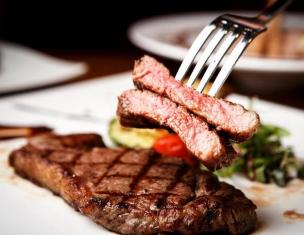Publication date: 03-12-2019
Why did my baby's palms and feet become wet?
Many parents are interested in why their babies have wet palms and feet. Such a symptom, indeed, cannot be ignored. It is necessary to be aware of this issue. Excessive sweating in some cases can be a sign of diseases or pathologies.
Etiology of the disease
Newborns often experience increased sweating. This manifests itself in the fact that the baby's palms and feet sweat. This condition may be normal. Newborns have not yet developed a body temperature regulation system. Increased sweating may indicate the formation of thermoregulation processes in the body. But this may not be the only reason. Infants up to one year old may have the following causes of sweating:
- Changing the environmental conditions surrounding the baby. The fetus develops in the womb at a constant temperature. After birth, its temperature reactions are inconsistent. The environment to which the baby’s body is accustomed changes. Adaptation to new conditions occurs. This process is usually accompanied by increased sweating.
- Heredity. If hyperhidrosis was observed in one of the parents or close relatives, it can be passed on to the child at the genetic level.
- Rickets. This disease is also accompanied by excessive sweating in the infant.
- Other diseases. The appearance of hyperhidrosis can be caused by a number of diseases.
Sweating is not just a voluntary process. If your feet sweat, this can be explained as a peculiar response of the body to irritants of various kinds. The latter can be both external and internal factors. Sweating helps regulate body temperature. In addition, it helps to normalize water-salt metabolism in infants.
External causes that can cause sweating of the palms and feet in a baby:
- stuffy room;
- too warm blanket, clothes;
- synthetic clothing materials.
How to reduce sweating?
To prevent sweating due to the influence of adverse external factors, some recommendations must be followed. So, the air in a newborn’s room should be no warmer than +22°C. The maximum permissible humidity level is 60%. The room needs to be regularly ventilated or air conditioned to ensure there is enough oxygen.
You should not put a lot of clothes on your child if his feet are sweaty. The skin must breathe. Choose clothes only made from linen, wool or cotton. Avoid synthetic materials. The newborn should be covered with a blanket that is not too warm. It is advisable to choose bed linen from cotton fabrics.
It is necessary to monitor the baby’s daily hygiene and bathe him. It doesn’t matter whether the child’s feet sweat or not. Maintaining hygiene is necessary in any case. The child must live according to a schedule so that there is no lack of sleep. You should strictly monitor your diet: what, how much and when he eats and drinks. Excessive fluid intake contributes to increased sweating in infant. As a result, your palms and feet become damp.
If all of the above recommendations are followed, but the child’s feet still sweat, then the cause may be a disease. In this case, you need to visit a pediatric doctor. To identify what disease caused such an unpleasant symptom as increased sweating, it is recommended to undergo the following tests:
- sweat to detect cystic fibrosis;
- general blood test;
- blood sugar test;
- blood test for various hormones;
- general urine test;
- blood test for syphilis.
An ultrasound of the thyroid gland should be done. Your doctor may recommend additional tests or shorten the list above. Each child requires an individual approach.
Sweaty palms and feet may be a sign that your child is being poorly cared for, does not maintain proper hygiene, or may indicate a medical condition.

Hyperhidrosis as a symptom of disorders
Hyperhidrosis in an infant is increased sweating. Modern medicine distinguishes two types of hyperhidrosis: primary and secondary. Primary (idiopathic) has been little studied. Scientists suggest that it occurs due to an increased number of sweat glands in some people. It is known that the disease is transmitted at the genetic level and is hereditary. Approximately 1 in 2,000 people suffer from this condition.

Primary hyperhidrosis appears in early age, even in infants. This is evidenced by:
- severe sweating of the palms;
- sweaty feet;
- sweating all over the body.
The disease is not dangerous. It cannot cause death or pathologies that threaten life and health. However, a person can suffer from excessive sweating throughout his life. Idiopathic hyperhidrosis is especially aggravated during puberty. With stress and heat, the symptoms, of course, intensify. If there is a child in the family suffering from such a disease, you need to provide him with a comfortable temperature regime, spend daily hygiene procedures and follow other recommendations that will help make the patient’s life easier. Hyperhidrosis is treated with special physiotherapeutic procedures and medications.
Secondary hyperhidrosis occurs due to an internal disease. In this case, as a rule, the baby sweats not only the feet and palms, but also the entire body. Various signs appear that accompany secondary hyperhidrosis:
- insomnia;
- loss of appetite;
- increased body temperature;
- rash;
- gastrointestinal disorders;
- frequent crying;
- dyspnea;
- other signs.

Diseases that cause illness
Various diseases contribute to the appearance of secondary hyperhidrosis. However, the true cause can only be identified through examinations and diagnostics. Experienced doctors will help solve the problem. The following diseases can be identified that provoke hyperhidrosis in children:
- vegetative-vascular dystonia;
- rickets;
- infectious diseases;
- thyroid diseases;
- diseases of the endocrine system;
- diabetes.

VSD – vegetative-vascular dystonia. This disease is manifested by various disorders of nervous regulation. The cause of the disease lies in the baby's excessive nervous excitement. To eliminate the disease, you should create a calm environment. The use of therapeutic water procedures also helps to get rid of the disease. A relaxing baby massage is effective. It is very important to restore the process of normal nervous regulation.
Rickets is a disease caused by vitamin D deficiency, sunlight. In this case, during the period of active growth, the child’s body lacks calcium and phosphorus salts. Problems with bone mineralization arise. In addition, the child becomes restless and fearful. To the point that he begins to flinch even from a quiet sound or in too bright light. Appetite decreases, sleep is disturbed, and intellectual and physical development lags. Excessive sweating appears, and the smell of sweat is sour.
With rickets, severe sweating of the head is very often observed, especially after waking up. A characteristic itching appears in the back of the head. A bald spot may even form. Lack of appropriate treatment leads to irreversible bone deformation. It is difficult to overestimate the importance of timely diagnosis of this serious disease.
Among the diseases that cause sweating of the baby's palms and feet are infectious diseases. In case of complications, shortness of breath, vomiting, and weakness may occur. If you do not treat on time, you can provoke sinusitis and otitis media. An infection that is not treated poses a significant threat to the life and health of the baby.
Endocrine diseases cause disruption of many body systems: nervous, digestive and others. Breasts sweat, their palms and feet become covered with sweat, and a fever appears. Other unpleasant symptoms may also occur. To diagnose thyroid disease, the child is referred to ultrasonography. It is important to contact a specialist in a timely manner and not risk the child’s health.
Any mother cares about her baby and really wants her child to develop correctly and never get sick. It is very rare to meet mothers who do not carefully examine their baby, and many of them may notice such a feature as wet feet. Of course, there are mothers who simply won’t pay attention to this, but there are also those who immediately begin to worry and worry.
Let's figure out why and what causes a child's feet to sweat, whether it's worth sounding the alarm about this, and what to do if suddenly baby's wet feet arise constantly.
I would still like to consider the reasons why little children’s feet begin to sweat.
So, the very first reason is poor heat transfer in our babies. At first, heat exchange in babies is not perfect and the child tends to overheat and become hypothermic very quickly. And only over time, heat exchange processes improve and the problem of excessive sweating disappears in small children. To avoid overheating of the child, so that his palms and feet do not sweat, you need to dress the child according to the weather. There is no need to wrap him up just because he is very small, he is a person just like you. You just need to be more attentive to him. If you notice that he is sweating a little, open it up, take off everything unnecessary, you don’t need to think that he will get sick, being in a warm house in only one thin blouse. If you notice that your child’s arms and legs are cool, then it may make sense to wear something extra.
Wet feet are one of the signs of rickets in a child. Up to a year, mothers may not have noticed such a problem as wet feet, and all because while the child is small and helpless, mothers follow all the recommendations of pediatricians, including winter period They give vitamin D to prevent rickets, and they also try to walk in the sun more often. After a year, the child is already getting stronger and many mothers are no longer so eager to listen to the advice of doctors. However, precisely the period from one year to five is the period when rickets most often occurs in children. Therefore, if, in addition to wet feet, you also notice drowsiness in your child, he has become very bad dream, there is some kind of lethargy behind him, and you also notice that the baby has a wet head and neck, then you need to urgently consult a doctor, as this obvious signs rickets. The pediatrician will order tests and then prescribe treatment.
Wet feet in a child may also indicate vegetative-vascular dystonia. Yes, yes, and there is nothing surprising here. This problem used to be a problem for adults, but now dystonia is also diagnosed in children. But they treat it not with the help of drugs, but by contacting a neurologist, who prescribes a set of exercises and massage. In addition, such children are recommended to harden the body, dressing inappropriately for the weather is contraindicated, and they are also advised to follow a sleep schedule, and it is very important that the baby also has a nap during the day.
Strange as it may sound, wet feet can also be caused by the fact that you put low-quality shoes on your child or put on tights with socks that are not made from natural fabrics. This is the safest reason why a child’s feet sweat and to avoid this problem, you just need to buy shoes that fit the feet and are made only from natural materials and the highest quality. Also pay attention to the fact that baby undershirts, rompers, socks for babies, tights, pants and blouses for children, in a word, clothes for babies and children, are natural, in size and appropriate for the season.
From the above, we can draw the following conclusions: if you notice wet feet, but the child is cheerful, cheerful, nothing bothers him, then most likely this is either a feature of his body and it will soon pass, or you are simply wrapping him up too much, afraid of catching a cold . If something else worries you and your intuition tells you, and the intuition of mothers has never failed, that something is wrong, then it is better to once again contact a pediatrician, who will examine the child and refer him to other doctors, who will be examined by It will be possible to draw some conclusions and, if necessary, undergo a course of treatment. And everything will be great for you and your baby.
Since sweating is more common in people of adolescence and adulthood, increased sweating in a small child worries the new mother. The causes of the phenomenon are varied: both non-threatening external conditions and internal pathologies that begin to develop, which in the future can significantly affect the health of the newborn.
About the features of thermoregulation in infants
During the first 12 months after birth, the mechanism that regulates the baby’s body temperature is not yet strong and works unstable. Therefore, the baby quickly freezes or overheats, depending on how he is dressed and where he is. Its body heats up or cools down depending on external conditions.
As the ambient temperature rises, the sweat glands work harder in an attempt to cool the body.
Therefore, if the hands and feet of a baby sweat when lying under a warm blanket or in woolen socks, then he is simply too hot, and you should try not to wrap the baby up.
In most cases, thermoregulatory failures disappear by the beginning of the second year of life.
Causes of sweating
Natural
Why sweat is released at all is known - this is a possible reaction of the human body to changes in the internal environment or external environmental factors. Water-salt metabolism and temperature control are impossible without this process. When a person is stressed, he sweats excessively.
Although wet hands and feet of a toddler are alarming because they may be the result of illness, this is not a reason to panic.
More common causes of the symptom are explained by the household environment or the characteristics of the newborn’s body:
- Bed linen and clothing made from synthetics or poor quality material do not allow air to pass through, causing the little one to overheat and his palms, legs and back to become wet.
- The tendency to sweat is inherited from parents.
- Excess weight causes the baby's body to expend a lot of energy, and this generates a lot of heat. To avoid overheating, the skin sweats.
- An intermittent metabolism causes sweating.
- Stressful conditions and diseases of the nervous system affect the thermoregulation centers in the brain and cause hydration of the periphery (extremities).
- High blood pressure causes a child to sweat.
- Wet palms may indicate infection with worms.
- An active baby with high muscle tone sweats more than a calm baby.
Pathological
Idiopathic hyperhidrosis
The reasons why a child develops primary hyperhidrosis have not yet been precisely established. It is assumed that the patient sweats excessively due to an increased number of sweat glands or due to heightened reactions to external stressful stimuli. The defect is inherited and does not depend on the sex of the newborn.
You can notice deviations by the third month of a baby’s life - first the palms and feet sweat, then the head, armpits and almost the entire body become involved.
Secondary hyperhidrosis
It is called so because it is not an independent disease, but is provoked by other pathologies. A number of symptoms that, in addition to sweating, characterize secondary hyperhidrosis:
- weakness, apathy;
- hyperexcitability;
- sensitive and unstable sleep;
- increased body temperature;
- poor appetite;
- rashes and pimples on the skin;
- digestive problems;
- frequent tears;
- nausea and vomiting;
- dyspnea.
Diseases that cause illness
VSD

The child’s blood vessels do not work correctly: they narrow or expand at random moments, weaken, and lose elasticity and strength.
A sick baby becomes weaker due to any external stress, suffers from dizziness, and his lower extremities sweat.
Rickets
It is provoked by a deficiency of an important nutrient - vitamin D. A large amount of sweat, especially during feeding, makes you worry about the occurrence of a similar problem. The combination of hyperhidrosis with:
- hair loss from the back of the head;
- anxiety;
- poor sleep;
- refusal of food;
- a fontanel that does not grow together for a long time.
If you notice the first signs, you should immediately visit a pediatrician who will prescribe vitamin supplements and other necessary medications.
Viral diseases

Flu, acute respiratory infections and colds - seasonal diseases which can subsequently lead to serious health problems for the child. If an infection occurs, the baby not only sweats, but also:
- temperature rises;
- weakness, lethargy, shortness of breath appear;
- the baby may feel sick.
The “sweating” symptoms may persist for some time after recovery, but then they will go away naturally.
Diabetes
Deviation poses a threat to the child’s health and requires urgent seeking qualified medical help.
- The following signs indicate that pathology is developing:
- the baby's feet and palms sweat;
- he is constantly tormented by thirst;
- the child becomes restless;
- diaper rash appears on the skin;
- urine changes color and becomes sticky;
Even a well-eating baby does not gain weight.
Thyroid diseases
Dysfunction of this important part of the endocrine system causes instability in the hormonal regulation of the body and this can provoke hyperhidrosis.
- It is worth taking your child to the doctor if the following symptoms are added:
- a sharp change in the smell of sweat;
- hyperactivity or abnormal lethargy;
insomnia, sleep disorders.
Only after a thorough examination of all systems will a physician be able to determine the source of the problem and develop a scheme for correct and gentle treatment of the thyroid gland that does not injure a fragile child.
In getting rid of any ailment, timeliness and prevention of disease progression is important. The sooner therapy begins, the higher the chance of avoiding complications.

Treatment
Treatment methods are prescribed by a specialist, based on the condition of the young patient and the identified pathology. You will probably have to go to see several doctors - a pediatrician, a neurologist, an endocrinologist.
Urine, blood and sweat tests will be taken, ultrasound and other studies will be performed to clarify the diagnosis. During treatment, it is necessary to ensure peace and the most comfortable temperature for the baby so that he does not sweat for domestic reasons.
- When choosing clothes and shoes for a child, pay attention to the natural composition of the fabrics.
- Do not “bundle” the baby too warmly or inappropriately for the season.
- Ventilate the room regularly, providing fresh air.
- Temper your little one, do a massage, exercise on a fitball.
- Bath the baby and encourage physical activity.
- To prevent a little person from sweating due to stress, pay attention to him, kiss him, speak kind words and create a welcoming and cozy atmosphere throughout the house.
- Go for walks more often, preferably twice a day for about an hour.
- Gently massage the newborn's feet.
- Organize foot baths with sea salt, pine needles or chamomile - they have a drying and calming effect.
- Use powder on sweaty areas.
External and internal conditions provoking discharge large quantity The baby sweats a lot. They can be either completely harmless or dangerous to his health.
First of all, it is worth ruling out household causes that cause the little one to overheat. If the baby’s condition causes concern, you should immediately take him to a doctor who will determine the true cause of the problem and prescribe adequate methods to solve it.
Why do you need to know about the causes and consequences of this phenomenon? Parents may encounter the problem of increased sweating in their child. Most often it is characteristic of the hands and soles of the feet. This should excite and concern adults. Indeed, in some situations, a sign of hypersweating indicates the presence of a pathology or disease.
Why do baby's palms and feet sweat?
- If the hands and soles of the feet sweat in a newborn, then parents need not worry. At this age, increased sweating indicates the formation of heat exchange processes. As soon as the thermoregulation system is adjusted, sweating will disappear on its own. Naturally, waiting for the problem to resolve itself is only possible in a situation where the child does not have rickets. The most common causes of sweating in children under one year of age are: Changes in environmental conditions. Intrauterine development of the fetus occurs at a stable temperature, but after the baby is born, temperature reactions are not constant. Sweating may be a consequence of increased formation internal systems
- and baby's organs.
- Rickets, which can be an actual cause until the child reaches two years of age.

Causes of sweating in children aged 2 to 12 years
But if there is such a problem in children from 2 to 12 years old, parents should immediately bring the child for a consultation with a specialist; in this case, it would be most logical to seek help from an endocrinologist or neurologist. Why do your palms and feet sweat? There may be several reasons for this, but each of them can be a harbinger of serious health problems:
- Unregulated fluid intake. It is common for young children to sweat on the soles of their feet and hands when they drink a lot. Excess fluid leaves the child's body in the form of sweat, through the pores.
- Parents force their child to wear clothes made of synthetic or poorly dyed material. This includes socks, mittens, tights and even pajamas. Such fabrics practically do not allow air to pass through, which worsens the heat exchange between the skin and the environment. The body stimulates heat transfer processes, and they, in turn, provoke increased heat release.
- The child suffers from obesity. Why is this happening? The formula for violations is very simple: the more extra pounds, the stronger the sweating. With any physical activity, the body begins to experience stress. He has to expend a lot of energy, because of this, sweating increases, his palms, back and face suffer.
- The temperature in the room is disturbed and there is no ventilation. Increasing the temperature in the room leads to excessive sweating. In this way, the body tries to protect itself from overheating.
- Abnormal or pathologically disturbed metabolism;
- Stressful situations, autoimmune diseases Central nervous system, constant fatigue. These factors most often cause dysfunction of the thermoregulatory center.
- Helminths often provoke increased sweating. Wet palms are a symptom of worm infection.
- The child may suffer from endocrine and vegetative-vascular disorders. They lead to malfunction of the thyroid gland or increased blood pressure. Any of these pathologies causes disruptions in the thermoregulation system, which is why children sweat.

Symptoms of what this could be
Wet palms and sweating skin of the feet can be regarded as an independent manifestation, when increased sweating is not a sign or consequence of any disease. This is primary hyperhidrosis. Caused by an increase in the reactivity of the sweat glands, which is the correct reaction to external stimuli.
Sympathetic nervous system sends a corresponding impulse to the sweat glands, which leads to increased sweating. Areas of excessive sweating in childhood: hands, armpits and soles of feet. In this situation, parents should carefully monitor the child’s condition and the number of such attacks.
Why is primary hyperhidrosis not dangerous? It is often caused by genetic inheritance. But in most cases, children sweat heavily either in infancy or in adolescence.

But secondary hyperhidrosis is already a sign of serious diseases. And unfortunately, there are a lot of such diseases. However, most often excessive sweating accompanies:
- infectious inflammation;
- all types of diabetes;
- goiter and other thyroid diseases;
- rickets;
- autoimmune hereditary diseases;
- metabolic disorders;
- obesity;
- renal failure;
- acute pneumonia.
Considering the danger and risk of complications, you need to urgently consult a doctor and undergo all the necessary diagnostic tests.
Should you worry and when should you worry?
The palm may become sweaty after intense play or walking, this is a direct factor in hyperhidrosis. But if wet limbs are a constant companion to physical activity, then it is better to show your child to a doctor.
Excessive sweating often becomes the body’s response to nearby heat sources, stressful situations, and changes in living conditions. But this is a completely adequate response of a child’s body. But if the reactivity of the thermoregulatory system goes beyond the norm, then a visit to a specialist should be urgent.

How to fight, how to be treated, what means to use
Sweating can be eliminated, but only after the cause of this phenomenon has been identified. But prevention in this matter is very important. The main rule is that the child must strictly observe personal hygiene. Hands and feet should be washed with soap. Moreover, this must be done at least twice a day. In case of excessive sweating, sea salt, a decoction of oak bark or peppermint leaves can be added to the bathing water. Before going to bed, dry your hands and feet with baby talcum powder.
Socks and underwear should be worn no more than one day. The preferred temperature in a children's room is 20-23C, while humidity indicators are also important, optimally 60%. You should not wrap your child up or dress him in layers.
You need to be outside more often and take care of hardening. Children who constantly sweat will benefit from sunbathing, physical exercise, and massage. Strong the immune system will help cope with bouts of sweating. Products for the children's table should be rich in calcium and vitamin D. If you are sweating, you should absolutely not give spicy, smoked or salty foods.
If wet extremities are a consequence of emotional sensitivity and hyperactivity, then it is recommended to drink soothing herbal teas. They can only be prescribed by a specialist, having previously clarified the allergic history of the small patient.
Many babies in infancy have sweaty hands and feet: this phenomenon can be a normal physiological process, or it can be a symptom of the development of a disease that is dangerous to the life and health of the baby. That is why, when such a problem arises, many parents worry: why does the child’s limbs sweat? Increased sweating can be caused by both external and internal reasons.
Sweating is necessary to ensure the function of thermoregulation in the body, normalizing the balance of water and salt. An increase in the amount of sweat produced can be the result of a huge number of reasons. Most often, the baby experiences severe sweating of the hands and feet due to the fact that his body has not yet fully adapted to environment
, the thermoregulation processes in his body are just beginning to return to normal. Because of this, even the slightest increase in ambient temperature and wearing too much clothing can increase the amount of sweat produced. There are other factors that provoke sweating that are considered normal.
Norm
- Most often, the reasons why a baby's limbs sweat do not pose any danger to the child's health and development. There are several causes of increased sweating related to the normal state of the body:
- Excessive consumption of liquids or milk.
- Improper nutrition, for example, early introduction of complementary foods or eating large amounts of food. Wrapping the baby in synthetic fabric
- , use of polyester clothing.
- Children often have sweaty hands and feet due to stress, excitement, moodiness, and screaming.
- High ambient temperatures. In the room where the baby grows, the temperature should be between 20-22 degrees. If the sweat produced has a medicinal odor, hyperhidrosis is by-effect
- their reception.
It is worth considering that when the provoking factor is eliminated, the problem itself disappears after a few days. In this case, medical intervention is not required. However, there are cases when an alarming symptom does not go away and causes a lot of inconvenience to the baby, in this situation it is necessary to consult a therapist.
It is worth considering that hyperhidrosis in an infant can be a consequence of heredity. Parents need to remember whether any of their close relatives suffered from this disease.
If you suspect hereditary hyperhidrosis, you must show your child to a doctor; at the appointment, you must present the following information: the intensity of the problem, the time and conditions under which it usually appears. The doctor should point out the location of problem areas, as well as the appearance of secondary warning symptoms.
Pathology
The arms and legs of a baby do not always sweat physiological reasons and are the norm. There are several diseases that manifest themselves similar symptom and require urgent medical attention.
- Pathology can be recognized by the following signs:
- Children behave restlessly and have trouble sleeping.
- The released sweat has a pronounced unpleasant odor and also contributes to the appearance of irritation on the epidermis.
- On the extremities, only the feet or palms sweat.
- The baby sweats very much and often. Most of all, hyperhidrosis manifests itself during games, during feeding, or during day and night rest.
Places covered in sweat become cold.
If the developing pathology is left untreated, sweat gradually acquires a strong sour odor.
Possible diseases Hyperhidrosis as a symptom has several dangerous diseases that affect internal organs or body systems. It is worth considering that any of the listed pathologies should be treated with early stages

, otherwise it can cause the development of dangerous complications. So, why do feet sweat: pathological reasons.
If there is a suspicion of the development of any of the listed diseases, the baby should be shown to a doctor.
If your baby's feet and hands are sweaty, he should be bathed every day. It is allowed to add a decoction made from string, oak bark or chamomile to the bath. If the problem occurs in a several-month-old child who is on breastfeeding, mother should give up fatty foods, salty, spicy and hot dishes. Similar preventive measures will allow you to quickly cope with the problem that has arisen and make the first months of his life easier for the baby.










